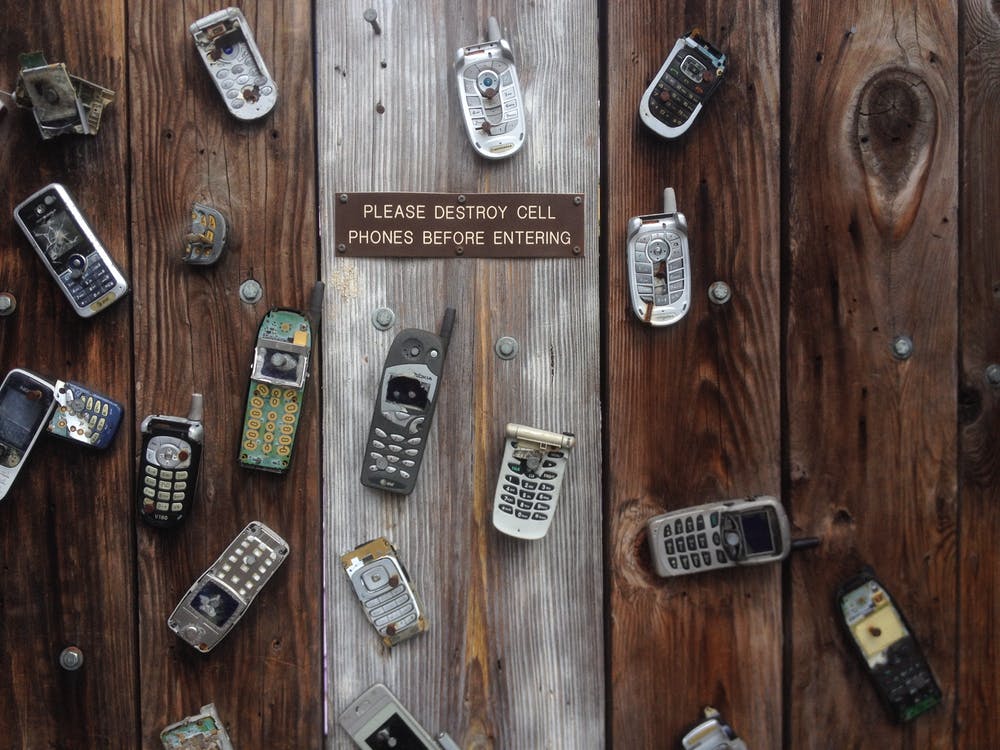It is incredible to think that just 20 years ago almost nobody had a mobile phone, and those who did were rich or important business men. They were large phones, and could not be used for a long time before the charge ran out. Today, however, mobile phones are everywhere, adults have them and most children too, is a way to keep in touch.
These phones continue to amaze us with what they offer us, the models range from simple calls to listen to music, play games, a small office, and even access to the Internet. All this means that there are immensity of mobile phones that no longer work. When someone updates their mobile, what do they do with the old phone?

It may seem that the launch of a mobile phone in the trash would not matter much; however, there are about 100 million of these phones that are discarded every year. This is the reason why cell phone recycling is so important. If you decide to get a new one, see with your supplier how to recycle the one you already have, they may have a program available.
You can also search for a cell phone recycling location in your community. Always erase all data on that phone before giving it to any recycling point; you can’t be too careful in today’s society.
It is not the volume of space that these mobile phones occupy the problem. The problem is that they also have lithium -ion batteries, and these can become explosive if they are in too long contact with sunlight. They can also cause soil and water pollution.
High levels of various forms of pollutants in water, such as lead and mercury, can come from mobile phones in landfills, however, they cannot always be taken out of drinking water through the treatment center, and none of us He wants to consume contaminated water.
Mobile phone recycling currently has not reached the popularity it should. The problem is that most people don’t know about this. Now that you understand the value of this type of recycling, make sure you do it the next time you get a new mobile phone. Tell others too, so we will have more people involved. In 2007 only 10% of mobile phones were recycled.
What about mobile phones that still work, but we no longer need? You can find information on how to donate them locally. The police department and local abuse centers can pick them up for those in a crisis situation. The reuse of mobile phones that are still operating is very important, someone who cannot get their own mobile phone could be benefiting.
Benefits of recycling
The benefits are powerful and everyone wins when people adopt recycling as a daily habit. Whether it is a community effort to help beautify a dirty neighborhood street, or on a larger scale to help a company save hundreds of thousands of dollars in waste management , the advantages of a well-maintained recycling program are infinite
Environmental benefits
- By recycling, people can prevent millions of tons of material from entering landfills, saving space for garbage that cannot be reused. Landfills not only pollute the environment, but also hinder the beauty of the city.
- Pollutants that are released into the air and water can be greatly reduced with an increase in recycling.
- It greatly reduces the amount of energy used daily by not having to produce new materials. In summary, recycling reduces greenhouse gas emissions to the atmosphere.
- If you do absolutely nothing else, recycling keeps the trash overflowed to a minimum, keeping the Earth beautiful.
- In terms of energy, a single bulb can be fed up to four hours with the energy saved from a recycled glass bottle.
- It conserves the earth’s natural resources such as raw materials, minerals, trees, etc.
Economic benefits
- Recycling programs that run properly cost the government, taxpayers and business owners less money than waste programs.
- Studies show that by continuing to increase positive recycling habits, the United States can create more than one million jobs a year.
- People can even earn money by collecting approved materials at a nearby recycling center that will pay for the product.
- For every job created in the waste management industry, recycling creates four.
There are innumerable benefits when recycling and that we must take into account, because they compensate for the time we spend on these efforts. The more we recycle, the more beneficial the recycling will be, and we can participate in these efforts automatically, without even thinking about it.



